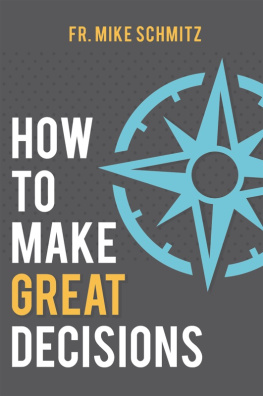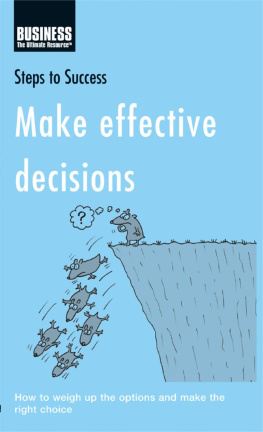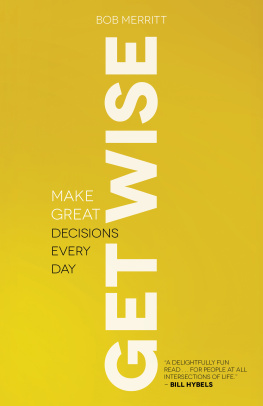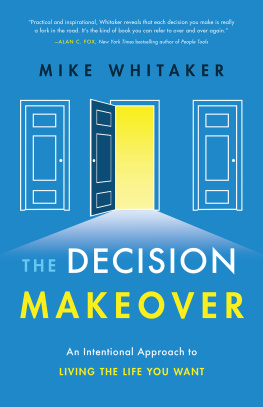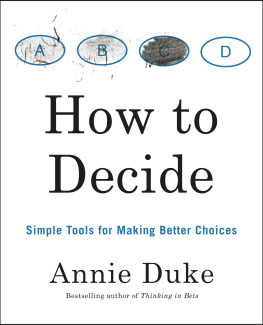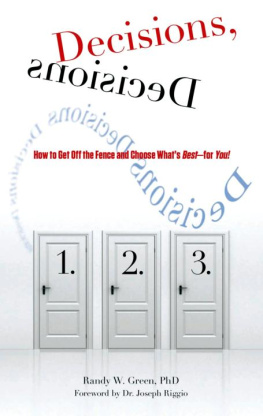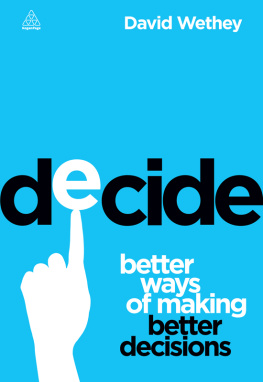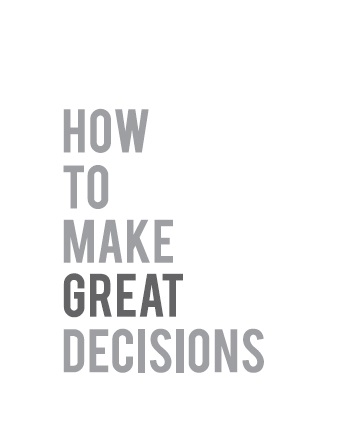WHEN IT COMES to any type of discernment, its really important to understand what is it that were discerning. For instance, we could look at our lives and say, Okay, I want to have this or I want to have that. Whether its my career, my relationships, or my finances, we tend to approach everything centered around ourselves. We say, Im going to discern what God wants for my life.
Now, that word my is a really interesting word. It implies some sense of ownership. But in a deeper Christian sense, even my life is not really mine. St. Paul says this: You are not your own; you were bought with a price (1 Corinthians 6:1920). Even before you are a Christian, you have to say that your life is not, strictly speaking, your life in the same way, for instance, that some material object is yours. C. S. Lewis used the example of a teddy bear. In The Screwtape Letters he says when we talk about our teddy bear, we refer to something we could tear apart if we wanted tobecause it belongs to us; its ours. And thats how we refer to our livesour home, our mom, our God, our life. We talk about our life or our God in the same way we talk about inanimate objects. Its my life, we say. Therefore, we could do whatever we wanted with it. We could make a shipwreck of it if we chose to.
Or we think the goal of our life is to maximize our happinessto find self-fulfillment or self-expression. In fact, a lot of times when we say were discerning what to do with our life, were really trying to figure out what will make us the happiest. What kind of relationship will make me the happiest? What kind of career will make me happiest? And when we approach it like that, we find ourselves in a bind, because all of a sudden, its no longer about anyone other than me; its all about me.
If we approach discernment with self-expression or self-fulfillment as our goal, were looking at it the wrong way, and not only because it isnt my life. Stop and think of all the options you have in your life right now. Barry Schwartz, a sociologist, did a study on what he called the paradox of choice. He starts by saying, Having choices is really, really good. Its great to have a lot of options out there, right? You go to the grocery store, and you dont just have spaghetti sauce. You have eighty-three different kinds of spaghetti sauce. You dont just have some salad dressing; you have 132 kinds of salad dressing for every possible taste you could possibly want.
Or what about going to the store to buy a pair of jeans? Those of you who have been living for a while know that back in the day, if you went shopping for jeans, you would go to the store, and they would have brands like Wrangler and Levis, or maybe even Jordache. Basically youd have a few options that worked with your waist size and your inseam, youd pick the one that fit the best, and youd be on your way. But today there are boot cut jeans, skinny jeans, super-skinny jeans, baggy jeans, super-baggy jeansthere are so many choices, and they have to fit perfectly, or theyre not the right jeans.
In other words, being good enough is no longer good enough. How many of us look at our lives like this when it comes to any decision we have to make? I have to point out, though, if something is good enough, that means it actually is good enough. But in our minds, good enough has come to mean not good enough. Why? Because were after the perfectthat thing that will make us maximally happy, that will maximize our self-expression, that thing that will give us the most joy, the most contentment, the most fulfillment, the most expression. Good enough is no longer good enough. And in that kind of world, the perfect becomes the enemy of the good.
I hear people say all the time, Oh Im discerning.... One of my fellow priests once said, Ever since discernment became popular, no one has made a decision. Everyone is too busy discerning. What do you really mean when you say, Im discerning my vocation, or, Im discerning what God wants? You really mean, Im just thinking about it.
True discernment is more than just thinking about something. Discernment involves action. It also involves a decision. And the very first decision is whether its about my life and my vocation or whether its about Gods will for my life and my vocation.
Back in the 1980s, a man named Robert Bellah coauthored a book called Habits of the Heart. In this book he talked about a crisis back in the eighties that he called expressive individualism. Basically expressive individualism is the mind-set that I just described. It says that in order to be me, in order to be happy, in order to be completely fulfilled, I have to find the job, the relationship, the vocation, the career, the whatever that will completely capture me, and then Ill be able to express myself to the world.
That was back in the eighties, and now what do we see? We see young people who are trying to decide on their careers; they are trying to decide what they are called to do. What do they want to do with their lives? When it comes to their major, when it comes to their career, a lot of young people have the idea that I should be able to just be myself and get paid for it. We see some of them on Instagramthey want to make a career out of just holding a camera and saying, Blah blah blah blah blah. This self-expression is often a perfect example of the expressive individualism Robert Bellah wrote about. He says that we end up with a bunch of individuals who are looking out for the individual.
I dont know if Robert Bellah was Catholic, or even if he was Christian, but he goes on to say that the remedy for expressive individualism is vocation. The remedy for expressive individualism is the idea that my life is not just my life. Vocation means that we are called out of ourselves. Were living our life, and at some point, God steps in and says, Okay, Im calling you out of yourself. Calling you out of your life. Im calling you to participate in my life. Im calling you to look up from yourself and look at others.
When I was in seminary, one of my fellow seminarians was an older man who had a lot of maturity, a lot of experience. He had great observational skills, too. He said, Here at the seminary, it seems like were just a bunch of navel-gazers. He had a point; we were always saying, What does God want? I dont know. How am I doing? He said, Were always looking at ourselves, always trying to figure out ourselves instead of looking up and saying, Okay, God, where do

